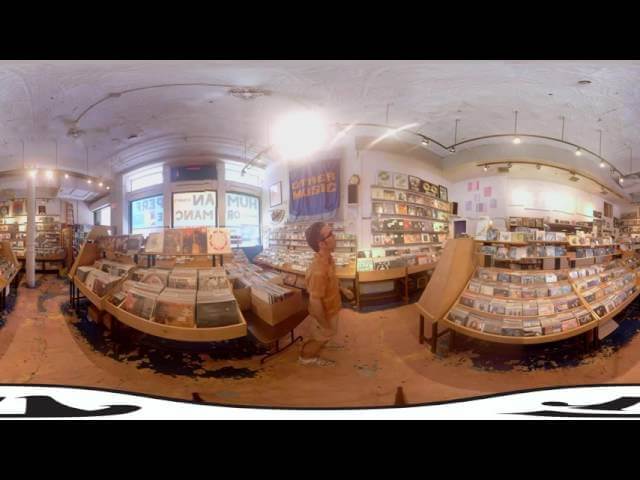One last 360-degree tour of New York’s influential Other Music record store

When it opened in New York’s artsy East Village 21 years ago, the Other Music record store established itself as a hub for new music, a place where people could find challenging, exciting sounds that were created by artists operating outside of the pop mainstream. Discriminating customers flocked to the place, as did up-and-coming bands. Among the acts who made in-store appearances there are DJ Shadow, The Shins, Vampire Weekend, and The Strokes. But the rise of the internet and the omnipresence of streaming audio robbed Other Music of its cultural relevance, and the store finally closed its doors last week. Another empire built on vinyl had gone the way of all flesh. People apparently don’t need hip record boutiques to point them towards the latest bands anymore. Before the finale, however, co-founder and co-owner Josh Madell gave TrackRecord a 360-degree tour of the place. For anyone who remembers being a music consumer during the alternative boom of the 1990s, this immersive video will have a powerful effect, even for those who never set foot in Other Music.
Other Music is, as the video shows, a modest establishment both in size and scope. It’s a cozy little enclave on East 4th Street, a perfect place to hang out and commiserate with knowledgeable clerks and like-minded music-heads. The store’s inventory is largely confined to vinyl records and compact discs, supplemented by a few music-centric books and magazines. In today’s retail environment, that really makes this place stand out. “We never did a lot of merchandising,” Madell recalls. “It was always mostly just about the records.” So there’s no wall of bobbleheads here, nor are there plentiful T-shirts or posters spilling out from every orifice. But the place does have its trophies, including some gold records donated by the bands who played there. Madell points out a few: “All three Vampire Weekend albums, first two Shins records up there, and there’s The Strokes’ first record. These are all bands that we worked with a lot. Shopped here. Hung out here.” He seems at peace with the store’s market-driven demise, but there’s the definite sense that a part of history is dying all around him.